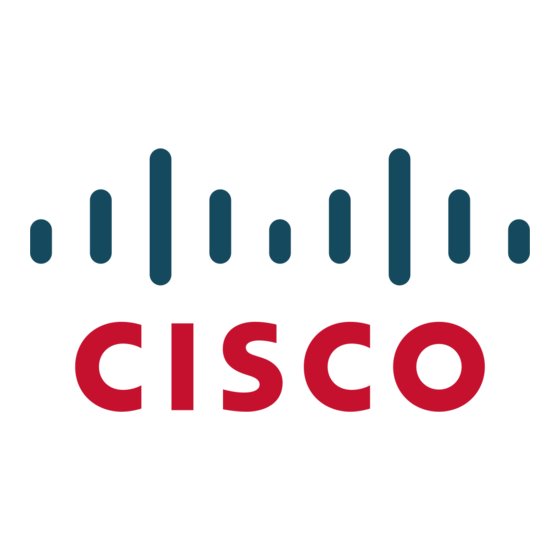Cisco 12 series Manuel du système - Page 29
Parcourez en ligne ou téléchargez le pdf Manuel du système pour {nom_de_la_catégorie} Cisco 12 series. Cisco 12 series 50 pages. Cisco unified ip phones chapter 43
Également pour Cisco 12 series : Manuel du système (36 pages)

Chapter 40
Cisco IP Phones
Shared Line Restrictions
•
•
•
•
•
OL-7135-01
devices. For N number of devices sharing the same line, both Maximum Calls
setting and Busy Trigger setting must be set to N. This allows each shared line
user to receive at least one call.
The shared line phone should not interact with the call that it does not receive
(because the Line Control does not maintain call information). So, a newly
registered device will not recognize any existing calls on that line. The newly
registered device cannot resume any held call if the call started before this
device was registered with the Line Control. For example, A and A' share the
same line, A is powered down (or logged out for the extension mobility user),
and A's receives an active call. After phone A is on and it registers with
Cisco CallManager, A should not see the existing active call in this line.
If shared line phones' calls should interact with each other, Cisco
recommends that you set the maximum number of calls for all shared lines
MCID devices to 2*N, where N is the number of shared line devices.
Do not use shared lines for Cisco CallManager Attendant Console pilot points
or hunt group members. The phone that acts as the attendant console supports
shared lines.
Do not use shared line appearances on any Cisco IP Phone that requires
auto-answer capability and do not turn on auto answer for a shared line
appearance.
Do not configure shared line appearances on the primary lines of the phones;
for example, if two phones have a shared line appearance, only one of the
phones should have the primary line configured as shared (the other phone
should have the secondary line configured as shared).
Barge and Privacy work with shared lines only.
Cisco recommends that you do not configure shared lines for Cisco IP
Phones, H.323 clients, and MGCP POTS phones; likewise, Cisco
recommends that you do not configure shared lines for H.323 clients and
MGCP POTS phones. If you configure the same shared line appearance for a
H.323 client, a MGCP POTS phone, for example, NetMeeting, and a Cisco IP
Phone, you cannot use the hold/resume feature on the H.323 client or MGCP
POTS Phone.
Directory Numbers
Cisco CallManager System Guide
40-29
